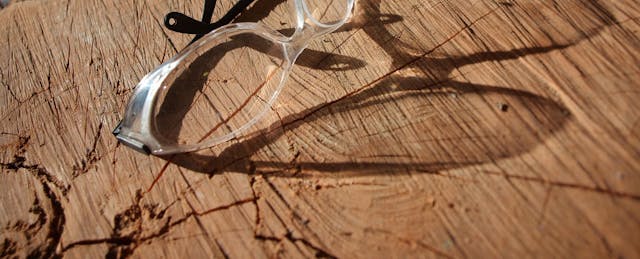Growing up in a small town I had a huge amount of freedom and a distinct lack of supervision. I was free to scavenge bike parts at the dump, build a tree fort out of salvaged lumber, and spend hours off with my friends exploring the back and beyond. Freedom like that is almost completely missing for kids in urban or even suburban settings. Kids need and often thrive with freedom and a little risk. In our MakerSpace we are involved in a lot of activities that have some inherent danger:
- Blacksmithing
- Woodworking
- Metalworking
- Making rocket motors and smoke bombs
- Soldering
- Archery
I frequently hear from parents who are “concerned” that someone might get hurt. There was even a lengthy (and specious) discussion on one of the 3D Printing forums about how kids could get hurt with consumer-grade printers.
The inescapable reality is that, like most things in life, Maker activities carry some real risk to them. One of my roles as a Maker facilitator is to strongly enforce some very basic safety standards so that no one ends up in the Emergency Room.
It is important because we have moved from being a country where in the 1930’s-50’s kids were building rockets, to a country where chemistry sets don’t actually contain any chemicals. We have become so fearful that many of the basic activities are no longer allowed because of the “possibility” someone might get hurt. Nevermind the possibility that some young maker might discover a new passion for STEM, or develop a hobby that doesn't involve bright screens and inactivity. Woodshops and metal shops are gone from the high schools, and we see danger in every activity.
At the Lab (formerly my "billiard" room) and with The Herd (inhabitants of said former "billiard" room), we have embraced William Gurstell’s concept of the Golden Third--doing things that could get you hurt with a strong dose of basic safety. When we are working with power tools, chemical agents or the forge we require:
- Eye protection
- Gloves
- Hearing protection when using power tools
- An apron where appropriate
- Soldering to be done outdoors
- Lots of hand washing
Kids need to be able to take risks and they need to find that there are natural consequences of not paying attention or horsing around. Touch a hot iron and it is going to hurt--you'll likely have a gnarly blister to boot. Swing a single-jack with enough force to move red hot steel and you best be focusing on the target (better yet, take a few practice swings on cool steel first!).
I have burns on my arms from flying sparks and cuts on my hands from where I have slipped with a chisel or knife, but that is a hallmark of almost anyone who has spent time making things. Kids from The Herd have indeed burned a finger touching a hot extruder and have learned first hand that molten ABS plastic can leave a mark--but is that not a reasonably good thing? The saying goes “experience is the best teacher” and by taking some fundamental precautions, everyone goes home with eyes intact, fingers still correctly attached and occasionally a Band-Aid.
They also get to go home with a sense of accomplishment and the slightly wicked feeling that they have been allowed to do something a little dangerous.
The party most at risk is likely me. People are entrusting their kids to my care for several hours at a time in an environment that is neither bubble-wrapped nor sanitized. In return I offer them chances to play on the edge of safety a little bit, burn their fingers, and figure out some things for themselves.
I’d love to hear back from readers. How safe is "safe" and what trade-offs should we make to give kids hands-on experiences?


